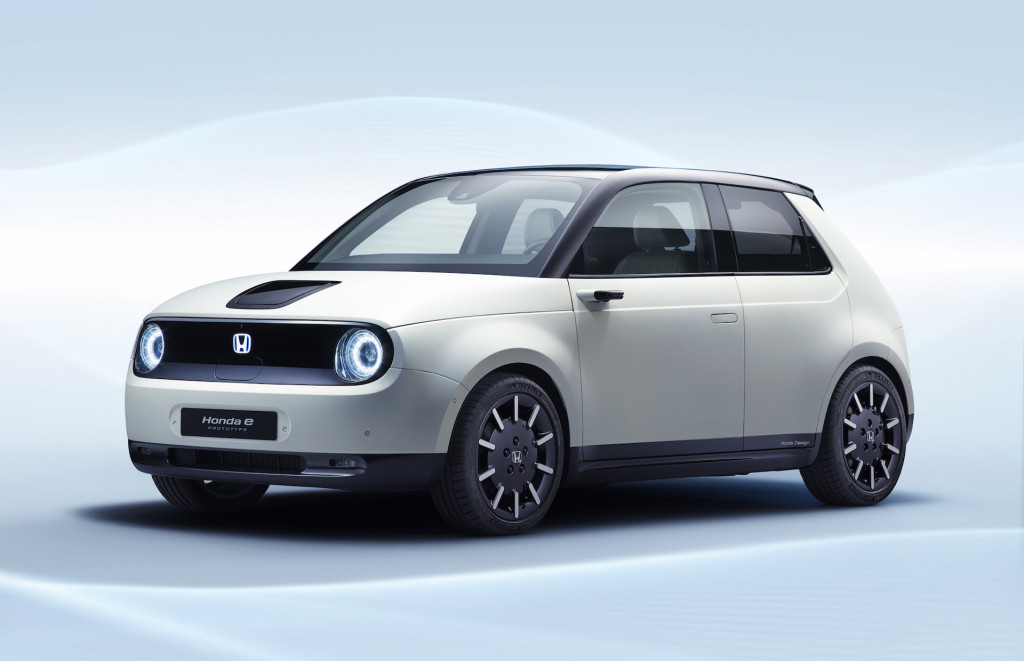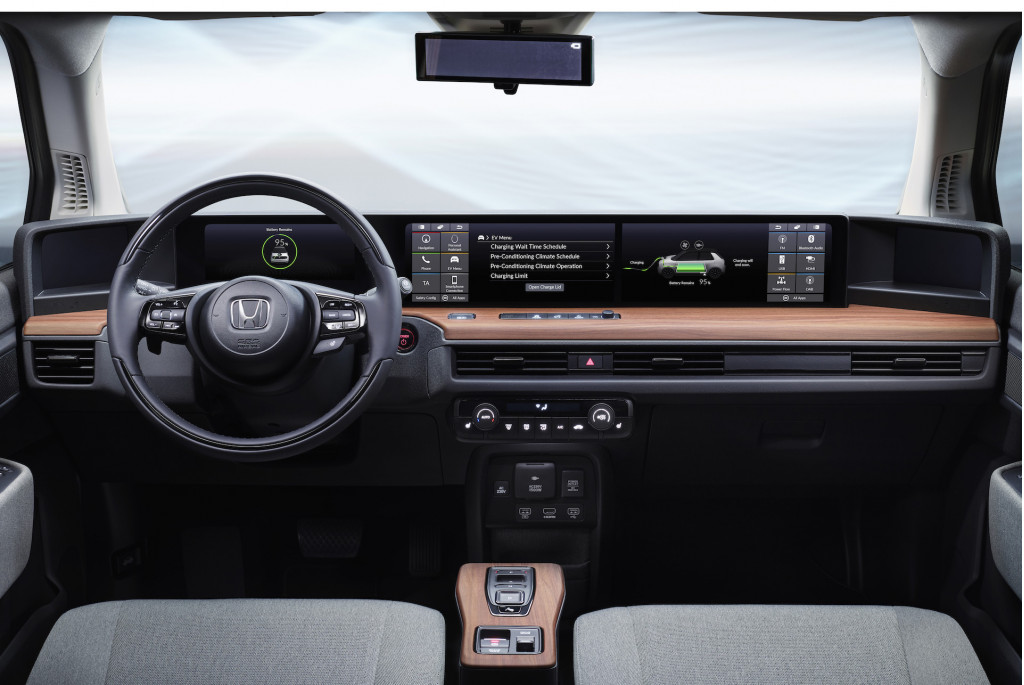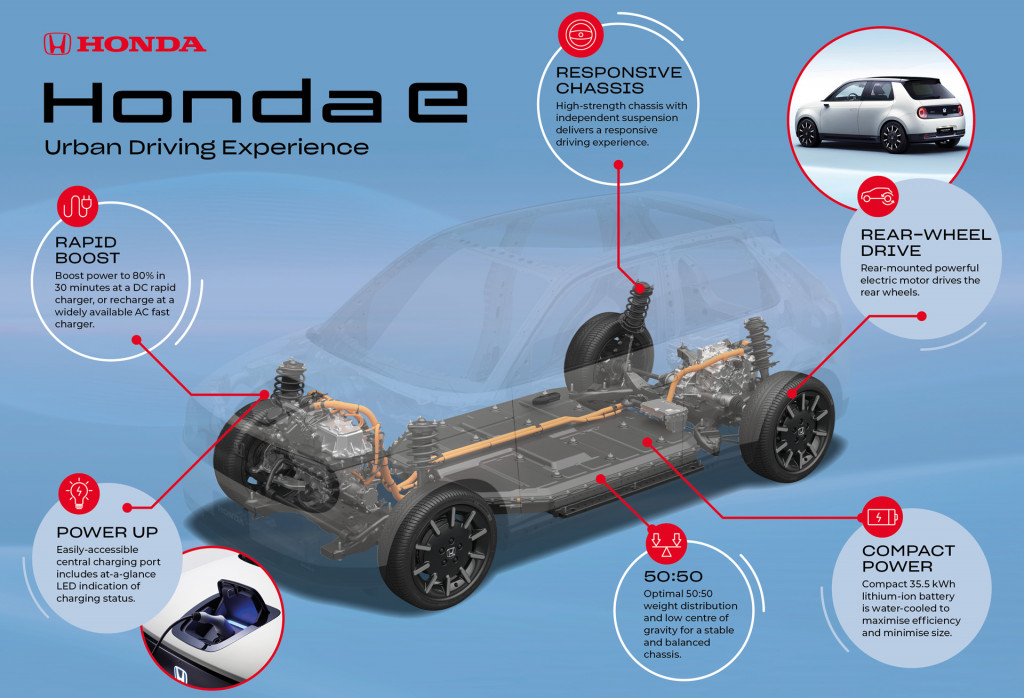Honda is stepping up its EV game going forward—well, more than five years forward.
At a "Honda Meeting" company briefing for investors and media in Japan last week, the company revealed that it is working on a new dedicated electric vehicle platform.
The platform, which will first be used by 2025, will provide the basis for mid-size sedans to large SUVs and will add to the new electric lineup taking form with Honda's dedicated electric city car, the Honda E, which arrives in Europe in spring 2020.

2020 Honda E prototype

2020 Honda E prototype
Although Honda says the Honda E has received 6,500 "expressions of interest" in Britain alone, it isn't big enough to attract many buyers in the U.S.
The new electric platform for mid-size and large cars, "has a different aim from the Honda E," Honda's general manager and chief engineer for electric vehicle development, Tetsuya Hasebe, told the conference. "This one aims for intercity, long-distance travel," he said, noting it has room for more batteries.

Honda E powertrain infographic
Like the platform under the Honda E, the larger one will be a skateboard chassis, with batteries housed flat in the floor. Unlike the Honda E platform, which will only support batteries from Panasonic, the new one will be engineered to use batteries from multiple suppliers, including Panasonic and Chinese supplier CATL, to give Honda flexibility in building the car around the world.
The basic format will be rear-wheel drive, to benefit sporty handling and give the cars a tight turning radius, but the Japan-developed architecture will be designed to allow a front motor for all-wheel-drive applications as well, Hasebe said.
In a release from the meeting Honda summed that the platform "will enable flexible product development, including body design, adoption of battery types to accommodate the desired EV range and whether to employ an all-wheel drive system."
The EV vision also builds on a commitment Honda CEO Takahiro Hachigo made in May—that it will expand its two-motor hybrid system, which underpins the company's plug-in hybrids, to its entire lineup in Europe.
The announcement echoes a similar move last month by Toyota, in announcing that it will develop a new large electric platform with Subaru, potentially for an SUV.
As emissions and fuel-economy standards around the world are set to tighten dramatically in coming years, and development of hydrogen distribution has lagged, Japan's big automakers who focused on fuel-cell development, rather than battery-electric cars, are scrambling to come around to build their own BEVs.












